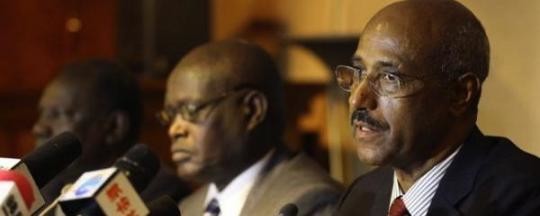Mediators of the South Sudan peace process have organized a symposium to take place from Thursday to Saturday with civil society, political parties and church leaders.
The event will be held at the African Union Commission premises in Addis Ababa, Ethiopia, with the participation of about 150 representatives of civil society, government, political parties, religious groups and traditional leaders.
IGAD announced the symposium “will initiate the inclusive phase of the mediation process based on a consensual, round table, multi-party dialogue.”
According to a press release by the East Africa regional bloc (IGAD), one main objective of the symposium is to share comparative experience from peace processes and transitional governance arrangements that worked well elsewhere.
Also the mediators aim for participants to “to identify possible areas of common ground on each thematic issue to advance future negotiations.”
IGAD is chaired by the Prime Minister of Ethiopia, and the organization’s mediation team is backed by the Troika of Norway, the United Kingdom and the United States.
Previous rounds of the peace talks included primarily only government and rebel negotiators, on the reasoning that these were the parties carrying arms and therefore the only ones to be involved in negotiating a ceasefire.
But the two sides agreed in a document signed 9 May that they would permit a wider more inclusive process as political talks proceeded in coming rounds.
Speaking to Radio Tamazuj on Tuesday, the chairman of South Sudan Civil Society Alliance (SSCSA) Deng Athuai stated that delegations from South Sudan and the diaspora have already arrived in Ethiopia to take part in the discussions starting on Thursday.
He noted the conference aims at reaching a clear view about the issues of governance in South Sudan including transitional period and reconciliation as well as restructuring of the state so as to put an end to the differences before the next round of negotiations resumes.
The activist also vehemently dismissed rumours of internal differences within the civil society in South Sudan. He said “there are no differences at all, but rather there was a lack of coordination, but I assure you that we have been able to contain the matter.”
Some civil society in the capital Juba recently protested against what they termed their exclusion from the IGAD-faciliated talks. In a statement issued last week they accused the regional mediation of trying to recognise ‘unregistered’ civil society organizations.
File photo: IGAD Special Envoys
Related coverage:
IGAD envoy wants ‘inclusive’ civil society talks (31 May)




